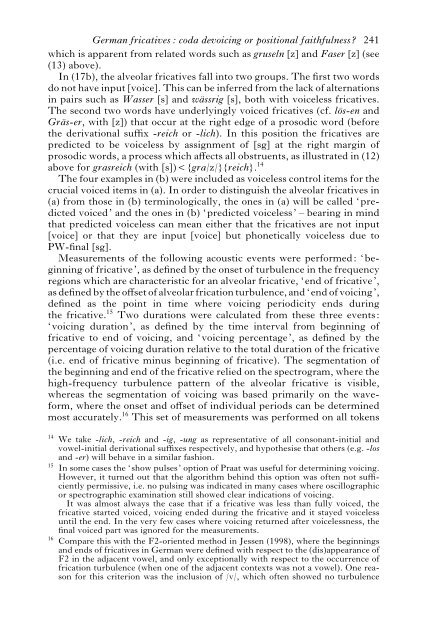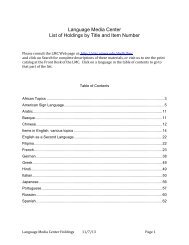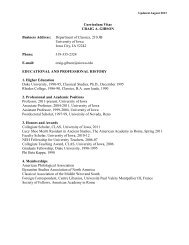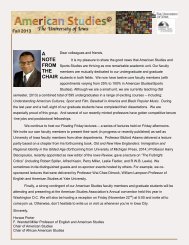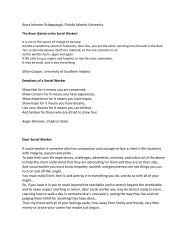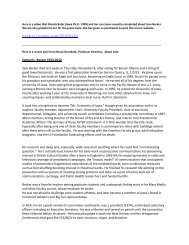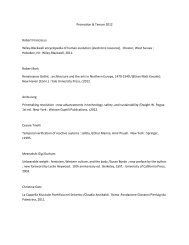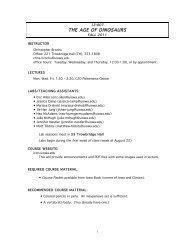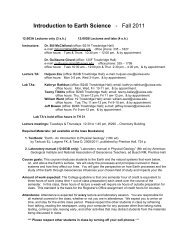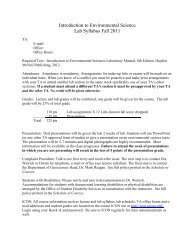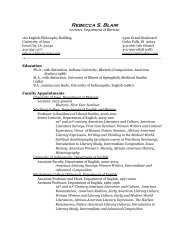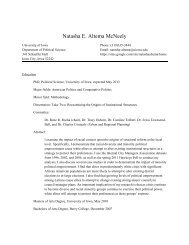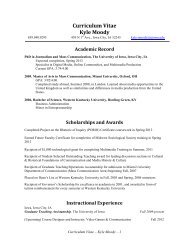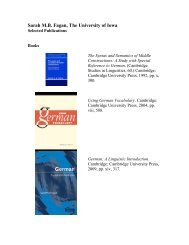German fricatives: coda devoicing or positional faithfulness?
German fricatives: coda devoicing or positional faithfulness?
German fricatives: coda devoicing or positional faithfulness?
You also want an ePaper? Increase the reach of your titles
YUMPU automatically turns print PDFs into web optimized ePapers that Google loves.
<strong>German</strong> <strong>fricatives</strong>: <strong>coda</strong> <strong>devoicing</strong> <strong>or</strong> <strong>positional</strong> <strong>faithfulness</strong>? 241<br />
which is apparent from related w<strong>or</strong>ds such as gruseln [z] and Faser [z] (see<br />
(13) above).<br />
In (17b), the alveolar <strong>fricatives</strong> fall into two groups. The first two w<strong>or</strong>ds<br />
do not have input [voice]. This can be inferred from the lack of alternations<br />
in pairs such as Wasser [s] and wässrig [s], both with voiceless <strong>fricatives</strong>.<br />
The second two w<strong>or</strong>ds have underlyingly voiced <strong>fricatives</strong> (cf. lös-en and<br />
Gräs-er, with [z]) that occur at the right edge of a prosodic w<strong>or</strong>d (bef<strong>or</strong>e<br />
the derivational suffix -reich <strong>or</strong> -lich). In this position the <strong>fricatives</strong> are<br />
predicted to be voiceless by assignment of [sg] at the right margin of<br />
prosodic w<strong>or</strong>ds, a process which affects all obstruents, as illustrated in (12)<br />
above f<strong>or</strong> grasreich (with [s])


